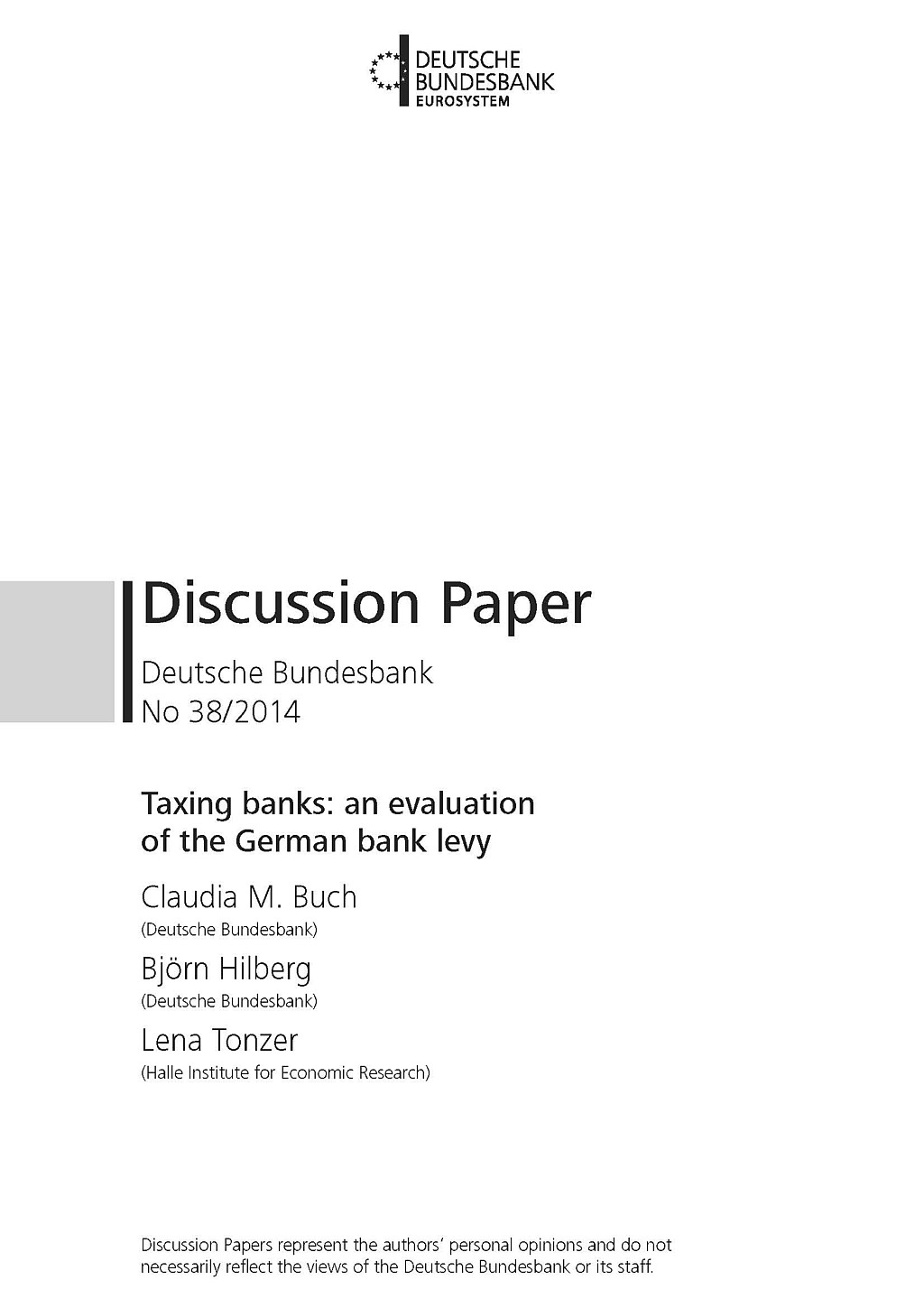
Taxing Banks: An Evaluation of the German Bank Levy
Bank distress can have severe negative consequences for the stability of the financial system, the real economy, and public finances. Regimes for restructuring and restoring banks financed by bank levies and fiscal backstops seek to reduce these costs. Bank levies attempt to internalize systemic risk and increase the costs of leverage. This paper evaluates the effects of the German bank levy implemented in 2011 as part of the German bank restructuring law. Our analysis offers three main insights. First, revenues raised through the bank levy are minimal, because of low tax rates and high thresholds for tax exemptions. Second, the bulk of the payments were contributed by large commercial banks and the head institutes of savings banks and credit unions. Third, the levy had no effect on the volume of loans or interest rates for the average German bank. For the banks affected most by the levy, we find evidence of fewer loans, higher lending rates, and lower deposit rates.





